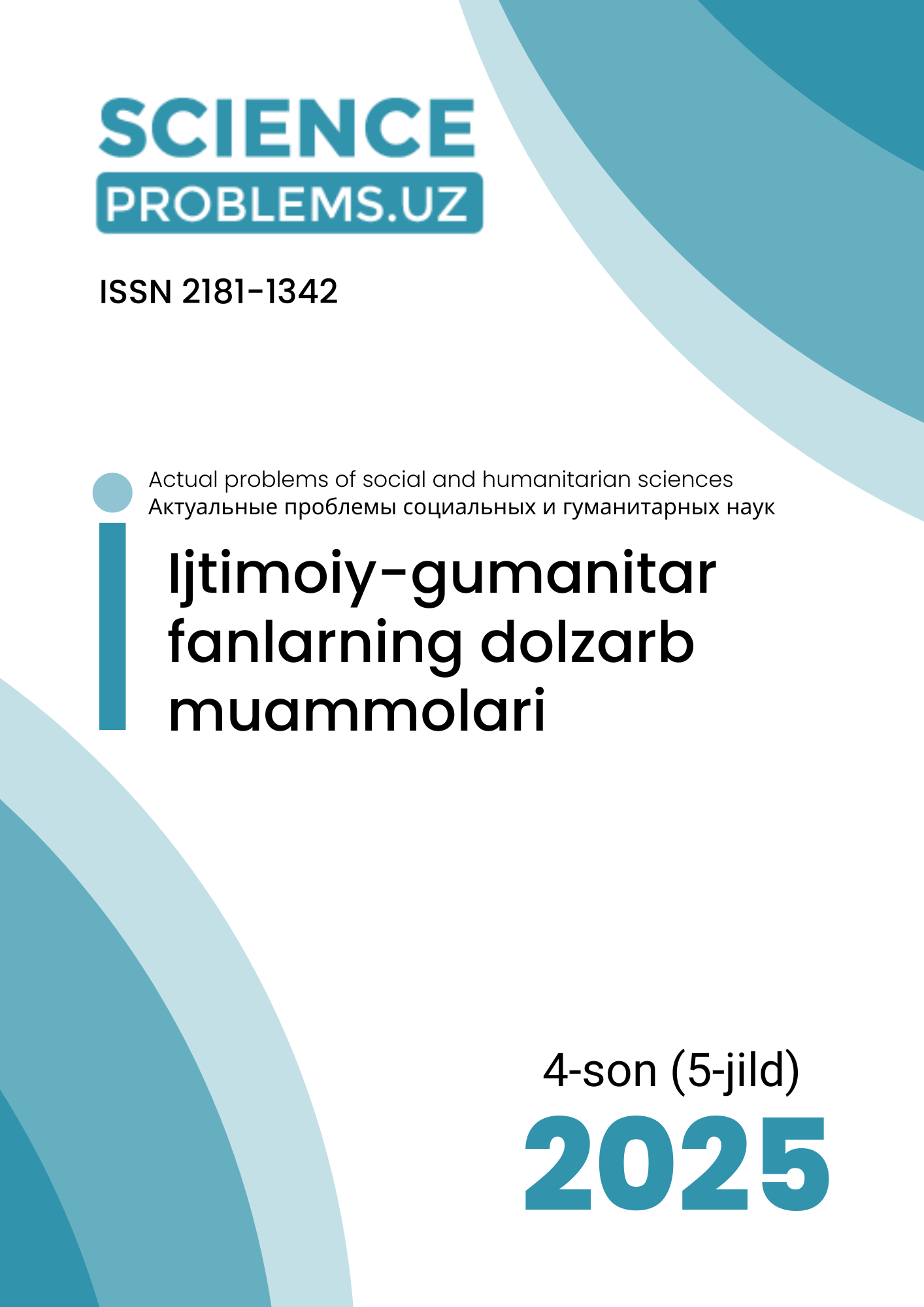BOʻLAJAK OʻQITUVCHILARDA KOLLABORATIV OʻQUV MUHITINI LOYIHALASH KOʻNIKMALARINI RIVOJLANTIRISH: INNOVATSION YONDASHUVLAR VA ISTIQBOLLAR
Kalit so'zlar
https://doi.org/10.47390/SPR1342V5I4Y2025N71Kalit so'zlar
kollaborativ oʻqitish, oʻquv muhitini loyihalash, taʼlim sohasidagi yangiliklar, raqamli kompetensiyalar, shaxslararo oʻzaro taʼsir, taʼlim amaliyoti.Annotasiya
Ushbu maqolada boʻlajak oʻqituvchilarning taʼlim texnologiyalaridagi jadal oʻzgarishlar sharoitida kollaborativ oʻquv muhitini loyihalash koʻnikmalarini shakllantirish muammosi koʻrib chiqiladi. Tadqiqot zamonaviy raqamli vositalar va pedagogik usullarning sinfda samarali oʻzaro taʼsir oʻtkazish va birgalikda ishlashga yordam beradigan kompetensiyalarni rivojlantirishga taʼsirini aniqlashga qaratilgan. Nazariy shartlar, mavjud empirik maʼlumotlar va bir qator pedagogik universitetlarda oʻtkazilgan tajriba natijalari tahlil qilinadi. Topilmalar shuni koʻrsatadiki, taʼlim jarayoniga innovatsion yondashuvlarning integratsiyasi nafaqat oʻqitish sifatini yaxshilashga, balki talabalarning oʻquv jarayonida faol ishtirok etish motivatsiyasini oshirishga yordam beradi. Maqolada ushbu koʻnikmalarni rivojlantirishning kelajakdagi pedagogik amaliyot uchun ahamiyati taʼkidlangan va raqamlashtirish va kollaborativ oʻqitish sohasidagi keyingi tadqiqotlar yoʻnalishlari aniqlangan.
Manbalar
1. Bekbagambetova Jansaya Ruslanovna (2024). Tarbiya darslarida o’quvchilarning kolloborativ ko’nikmalarini rivojlantirishning mohiyati. Преимущества и проблемы использования достижений отечественной и мировой науки и технологии в сфере иноязычного образования, 1(1), 197–200. извлечено от https://inlibrary.uz/index.php/field-foreign-education/article/view/32569.
2. Rasulova Zilola Durdimurotovna. Hamkorlikda o‘qitish texnologiyasidan foydalanib talabalarda kreativ sifatlarini rivojlantirish // 29-to’plam mart 2024: http://www.pedagoglar.org/.
3. Rasulova Zilola Durdimurotovna (2021). Hamkorlik texnologiyasiga asoslangan ta’lim jarayonini tashkil etish. Scientific progress, 2 (6), 964-971.
4. Dillenbourg, P. (1999). Collaborative Learning: Cognitive and Computational Approaches. Oxford: Elsevier.
5. Shulman, L. S. (1986). Those who understand: Knowledge growth in teaching. Educational Researcher, 15(2), 4–14.
6. Felder, R. M., & Brent, R. (2009). Active learning: An introduction. ASQ Higher Education Brief, 2(4), 1–5.
7. Johnson, D. W., & Johnson, R. T. (2009). An educational psychology success story: Social interdependence theory and cooperative learning. Educational Researcher, 38(5), 365–379.
8. Выготский, Л. С. (1978). Мышление и речь. М.: Издательство «Психология».








